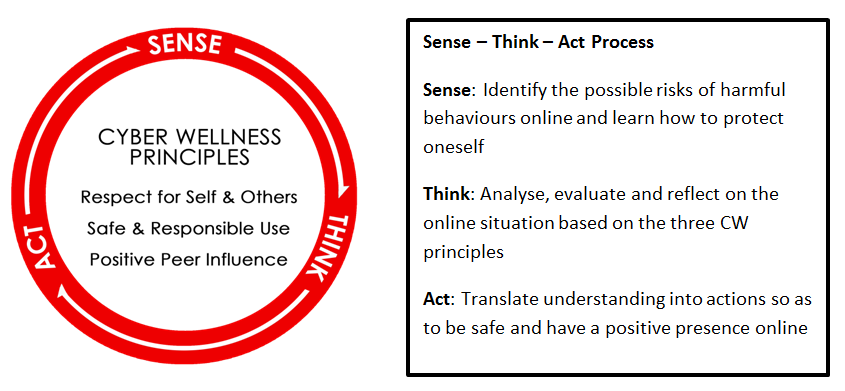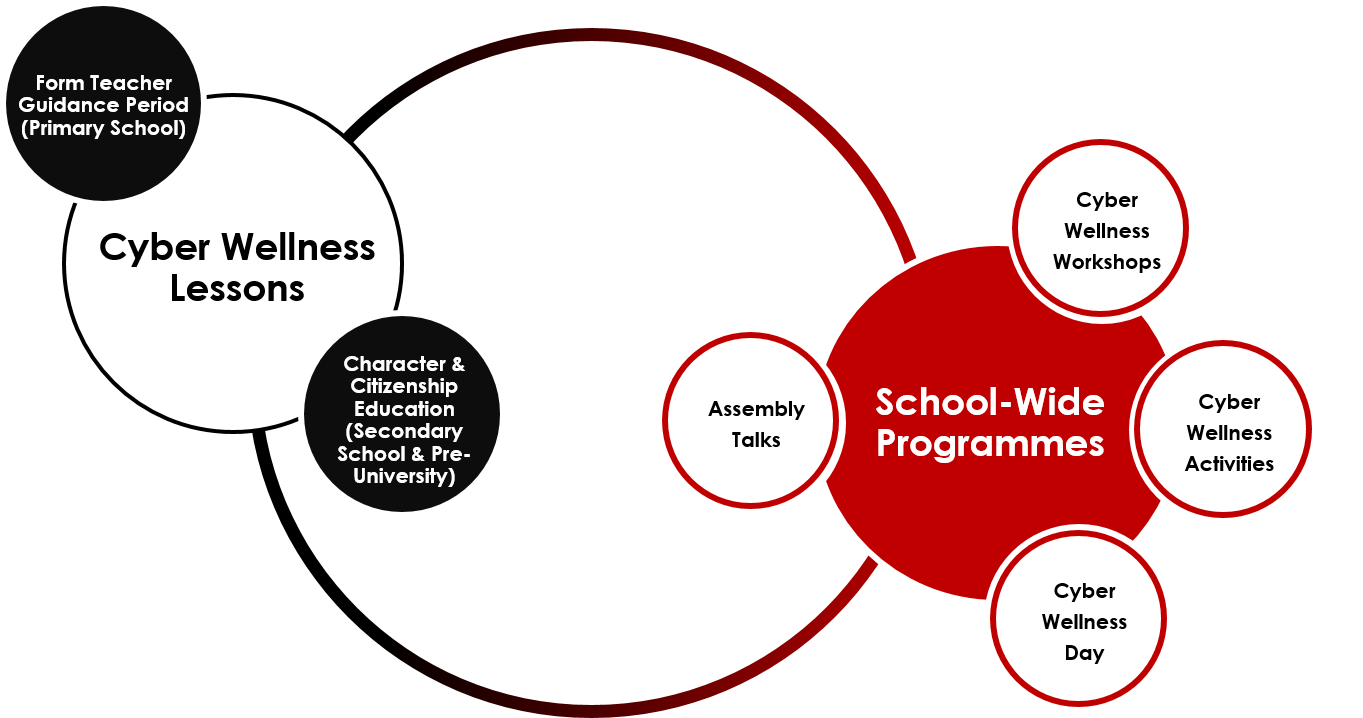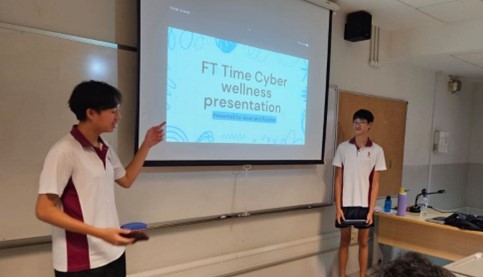Cyber Wellness Tips
What is Cyber Wellness?
Cyber Wellness (CW) refers to the positive well-being of Internet users. It involves an understanding of online behaviour and awareness of how to protect oneself in cyberspace. The focus of CW is on helping students to become responsible digital learners. When navigating cyberspace, students should demonstrate respect for self and others and practise safe and responsible use. Students should also be a positive peer influence by harnessing technology for collaboration, learning and productivity, as well as advocating positive use of technology for the good of the community.
MOE Cyber-Wellness Framework

MOE uses the CW framework to develop the child’s instinct to protect and empower him to take responsibility for his own well-being in cyberspace. The three principles - ‘Respect for Self and Others’, ‘Safe and Responsible Use’ and ‘Positive Peer Influence’ - when adhered to, will anchor a child’s well-being in cyberspace as he will then be able to make careful and well-considered decisions.
Principles
(1) Respect for Self and Others
Students need to:
-
uphold their own dignity when online (e.g. share appropriate content and participate in only legal online activities)
-
respect other people online (e.g. put themselves in others’ shoes, accept diverse views and opinions, give credit when using other people’s work and seek permission where necessary, avoid sharing hurtful materials).
(2) Safe and Responsible Use
Students need to:
-
have an understanding of the risks of harmful and illegal online behaviour and take steps to protect themselves (e.g. keep their personal information private, verify the reliability of information using various sources, take steps to avoid dangers they may encounter online).
-
make wise and healthy choices (e.g. maintain a healthy balance of their online and offline activities).
(3) Positive Peer Influence
Students need to:
-
be a positive role model online (e.g. share healthy and positive content, harness the affordances of technology to do good for society).
-
advocate positive online behaviour (e.g. stand up for their peers online, report cases of cyber bullying to a trusted adult/authority, post encouraging remarks on social media).
-
Embrace the affordances of technology while maintaining a balanced lifestyle between offline and online activities.
-
Be a safe and responsible user of technology and maintain a positive online presence.
-
Be responsible for personal well-being in the cyberspace.
Damai’s Cyber-Wellness Education
Cyber-wellness
Education in Damai Secondary School comprises
a) the CW lessons in the formal curriculum and
b) the school-wide programmes (e.g. CW assembly talks, Peer Support Leader-led
CW sharings) to reinforce the importance of CW and its messages.


In Damai, our Peer Support Leaders (PSLs) play a crucial role in promoting cyber wellness by advocating healthy and responsible online behaviour. We believe in the importance of empowering our student leaders to stay informed on current cyber trends and take initiative in guiding their peers towards making mindful choices in the digital space.
Cyber-Wellness Curriculum
|
Topics |
What your child will learn about |
|
Cyber use |
|
|
Cyber identity |
|
|
Cyber relationships |
|
|
Cyber Citizenship |
|
|
Cyber Ethics |
|
Support at home
To complement the cyber wellness curriculum in schools, parents can set a good example at home in the use of technology and play an active role in guiding our children to navigate the cyberspace.
-
Provide opportunities for offline activities - Spend time with your child by carrying out family activities such as sports and outdoor activities so that your child has a healthy and balanced lifestyle.
-
Role modelling - Manage your own digital habits such as avoiding extensive use of technology and avoiding use of technology during mealtimes.
-
Establish ground rules for internet use - Have a time limit for the use of computing device.
-
Navigate the internet together to understand their usage - Surf the Internet with your child so that you know what your child does online and whether your child is involved in age-appropriate activities.
-
Talk with your child about his/her internet use - Encourage your child to share with you his/her favourite online websites, things he/she does online and what is cool amongst his/her friends.
Useful Resources
From MOE:
From External Agencies:
Other Useful Cyber-Wellness References (Please click on links to download.)

